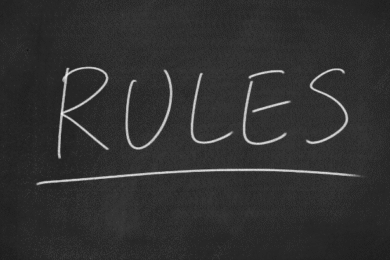Five Marketing Predictions for 2025
Jan 2, 2025By this point, most marketers have become accustomed to the never ending whirlwind of change and evolution in the digital…

Starting June 28, 2025, the European Accessibility Act (EAA) officially comes into effect, with the aim of improving accessibility and inclusivity across the European Union (EU).
This is a potentially crucial moment for businesses offering digital products or services that may be used in the EU, whether you’re based there or not. To ensure that your business is ready for this new legislation, it’s vital to assess your compliance, sooner rather than later.
The European Accessibility Act (Directive (EU) 2019/882) is a landmark EU legislative measure designed to make a broad array of digital products and services more accessible to individuals with disabilities.
According to the World Health Organisation, over one billion people worldwide live with some form of disability. By implementing the EAA, the EU aims to reduce the barriers these people face, granting equal opportunities in accessing information, services and products online.
The European Accessibility Act (EAA) paves the way for a more inclusive and accessible world by establishing essential standards for digital and electronic products and services.
It aims to ensure that everyone, including people with disabilities, can access:
At first glance, the EAA may seem like a legislative minefield, it actually provides advantages for both users and businesses alike. First and foremost it improves universal accessibility, but it also allows businesses to expand their reach to a wider audience.
By embracing these standards, you’re creating equal opportunities and reshaping how people engage with your products.
These new regulatory requirements will have a widespread ripple effect. Even after Brexit, the EAA’s influence is still likely to affect UK based businesses in a range of instances:
If your business provides digital products or services to EU-based consumers, you’ll need to align with EAA standards to legally operate in that market. Compliance ensures your offerings remain accessible and competitive.
UK companies that export software, digital platforms or tools to EU-based businesses may also face compliance demands. Many EU entities will require their suppliers to meet EAA standards as part of procurement policies.
Existing UK accessibility legislation, such as the Equality Act 2010 and Public Sector Bodies (Websites and Mobile Applications) Accessibility Regulations 2018, shares a common vision with the EAA.
While there’s no strict legal obligation to implement EAA compliance in the UK (at this time), neglecting to do so could mean losing access to valuable EU markets or competitive partnerships, meaning that UK companies need to stay sharp and proactive to navigate these impacts.
The EAA applies to a wide range of businesses, including:
While micro-enterprises are currently exempt, why wait? Early voluntary compliance can future-proof your business and give you a competitive edge. Embracing accessibility standards now ensures you’re ready for the future, minimising potential disruptions as regulations evolve.
Achieving compliance with the EAA is your opportunity to proactively transform your digital frameworks and workflows for success. Implement the following checklist to ensure your business meets the new legislation.
1. Conduct a Comprehensive Accessibility Audit
Perform a detailed review of your digital platforms, including websites, mobile apps and digital content. Use accessibility evaluation tools such as Axe, Lighthouse or Wave alongside frameworks like WCAG 2.1 AA to identify gaps in compliance.
Speak to our team for an audit on your website today!
2. Implement User-Friendly Features
Focus on embedding accessible features into all your digital products and services. Key optimisations include:
3. Make Documentation Accessible
Product manuals, user guides and other support materials must also be available in accessible formats, such as braille, large print or digital copies compatible with assistive devices.
4. Integrate Accessibility into Your Design Process
Develop a culture of inclusivity by training teams on accessibility principles and encouraging inclusive design from the project initiation phase. Avoid retrofitting solutions at later stages, which can be more challenging and costly.
5. Monitor and Maintain Compliance
Accessibility isn’t static. Business processes, technology and accessibility regulations evolve over time. Build regular testing, updates, and monitoring into your workflows to ensure ongoing compliance.
By partnering with Extramile, you can rely on our expert team to prove innovative, user-friendly solutions that ensure accessibility for all, while helping you stay confidently compliant with the EAA and other accessibility standards.
From audits and design enhancements to full scale implementation, we simplify the entire accessibility process, making it easier for your business to reach a wider audience.
The EAA authorises individual EU member states to enforce compliance, meaning sanctions can vary depending on the local jurisdiction. However, penalties across the board can be severe and include:
Non-compliance is about far more than just the legal risk, it signals a lack of inclusivity and empathy, which can damage your brand reputation and ability to connect with modern, social conscious audiences.
While the EAA primarily applies to B2C (business to consumer) offerings, businesses in B2B (business to business) spaces are not exempt.
If your products or services are part of consumer facing solutions, compliance may become mandatory as part of your clients’ procurement requirements.
Additionally, EU public sector contracts will enforce strict accessibility standards on all suppliers, regardless of whether they operate in B2C or B2B sectors. Being part of a digital supply chain means accessibility standards could still apply indirectly, even if your direct consumers are businesses.
Accessibility isn’t about ticking boxes, it’s about creating powerful, equitable experiences that genuinely matter, not only to benefit individuals with disabilities, but also to enhance usability for everyone.
By implementing inclusive design, your business can expand its audience and build stronger customer loyalty by embracing modern values of equality.
At Extramile Digital, we specialise in helping businesses like yours develop accessible, compliant digital strategies.
Need clarity on where to start? Get in touch with our team for an audit on your website. We’re here to help you align with EAA requirements and provide exceptional accessibility solutions that make your digital presence stand out.

By this point, most marketers have become accustomed to the never ending whirlwind of change and evolution in the digital…

In high-stakes sectors like defence and aerospace, effective marketing is about building trust, demonstrating unwavering reliability and navigating a unique…

Staying top of mind with decision makers is more challenging than ever in competitive B2B sectors. Prospects are flooded with…

As 2025 draws to a close, it’s time to reflect on how Google’s confirmed SEO algorithm changes played out and…